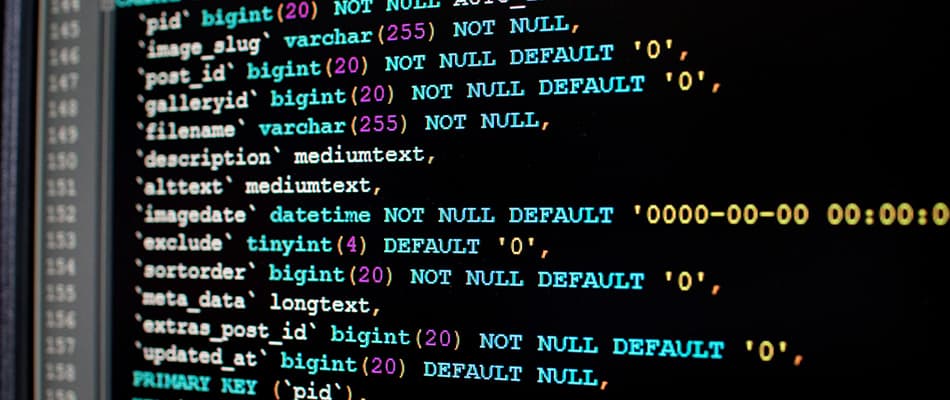Data Analytics vs Cyber Security- Know How They Differ!
The need to maintain large volumes of data for strategic decisions and to safeguard that data from cyber threats has given rise to two critical fields: Data Analytics and Cyber Security. Data Analytics focuses on transforming raw data into actionable insights, and Cyber Security focuses on protecting data and networks from malicious threats. Choosing between a career in Data Analytics and Cyber Security involves understanding which field aligns better with your skills and career goals. By understanding both areas thoroughly, you can make a better decision that matches your interests and the growing demand in these sectors.
Read the article to learn more about data analytics vs cyber security, their similarities and more.
Difference Between Data Analytics and Cyber Security
Data Analytics and Cybersecurity are two important fields in the modern IT landscape. Data Analytics involves interpreting and understanding data to drive business insights and decision-making. On the other hand, cybersecurity is focused on safeguarding digital assets and protecting systems from malicious attacks and breaches. Let us know about data analytics vs cyber security from the table below.
|
Cyber Security |
Data Analytics |
|
Cyber Security protects systems, networks, and data from online attacks and unauthorised access. |
Data Analytics focuses on analysing large data sets to extract insights that help inform business decisions and strategies. |
|
Cyber Security professionals safeguard sensitive information and systems by identifying vulnerabilities, preventing security breaches, and responding to cyber threats. |
Data Analytics professionals transform raw data into actionable information and find patterns, trends, and insights to improve business outcomes. |
|
Cyber Security requires knowledge of network security, encryption, risk management, and tools like firewalls, SIEM systems, and penetration testing. |
Data Analytics relies on statistical analysis, machine learning, data visualisation tools, and programming languages like Python or R. |
|
Cyber Security Experts monitor networks, detect threats, implement security protocols, and respond to incidents to ensure the integrity and confidentiality of data. |
Data Analysts work with databases, clean and organise data, and create reports that help companies understand customer behaviour, market trends, and business performance. |
|
Cyber Security aims to prevent, detect, and reduce cyber threats to protect data and systems from damage or unauthorised access. |
Data Analytics aims to provide insights that optimise processes and improve business efficiency. |
Also, know about information security vs cyber security here
What is Data Analytics?
Data analytics is the process of collecting, transforming, and organising data to draw meaningful conclusions, make predictions, and support informed decision-making. It is a broad, multidisciplinary field comprising various math, statistics, and computer science techniques to analyse data sets. Data analytics goes beyond just analysing data; it includes data science, which involves using data to theorise and forecast, and data engineering, which focuses on building systems to collect and store data. Unlike data analysis, which specifically deals with extracting insights from data, data analytics covers the entire process, from data collection to developing frameworks for managing and interpreting data.
Learn about Data Analyst Interview questions here
What is Cyber Security?
Cyber security refers to the collective methods, technologies, and processes designed to protect the confidentiality and integrity of computer systems and networks from cyber-attacks or unauthorised access. Its primary goal is to safeguard all organisational assets from both internal and external threats and disruptions caused by natural disasters. Since these assets are often composed of multiple interconnected systems, maintaining an effective cyber security posture requires coordinated efforts in all information systems.
Also, know about cyber security vs network security here
Similarity Between Data Analytics and Cyber Security
After learning about data analytics vs cyber security, let’s check their similarities. Both data analytics and cyber security rely on data to drive their functions. Data Analytics focuses on interpreting data to find insights, while cyber security uses data to detect and respond to threats. Below are the similarities between data analytics and cybersecurity.
- Both Rely on Data: Both fields depend heavily on data. Cyber Security uses it to detect threats, while Data Analytics uses it to identify patterns and support decision-making.
- Importance of Visualisation: Visualisation tools like charts and graphs are essential in both fields to present data clearly and help professionals quickly identify patterns or anomalies.
- Support Decision-Making: Data from both fields guides critical decision-making. Data Analytics helps inform business strategies, while Cybersecurity decisions focus on protecting systems from potential threats.
- Need for Continuous Monitoring: Ongoing data monitoring is essential. Data Analytics tracks data for trends, while Cyber Security monitors networks and systems for potential security breaches.
Understanding data analytics vs cyber security is essential to know their role in managing and protecting organisational data. While Data Analytics focuses on extracting insights from large datasets to support decision-making, Cyber Security aims to protect data and systems from threats. Despite their differences, both fields rely on data, statistics, and continuous monitoring to achieve their goals. For those looking to build a career in cybersecurity, the Digital Regenesys Cyber Security course offers training with internationally recognised certifications, equipping professionals with the skills required to safeguard modern digital infrastructures.
FAQs on Data Analytics vs Cyber Security
What is the primary focus of Data Analytics?
Data Analytics collects, transforms, and interprets data to draw meaningful conclusions and support decision-making.
What does Cyber Security aim to protect?
Cybersecurity aims to protect computer systems and networks’ confidentiality, integrity, and availability from cyberattacks and unauthorised access.
How do Data Analytics and Cyber Security use data?
Data Analytics uses data to find insights and support decision-making, while cybersecurity uses data to detect and respond to security threats.
What role do statistics play in these fields?
Statistics are used in Data Analytics to identify trends and in Cyber Security to detect anomalies and potential threats.
What is the main difference between Data Analytics and Cyber Security?
Data analytics focuses on interpreting data for business insights, while cybersecurity protects data and systems from threats.
What career roles are associated with Cyber Security?
Career roles in cybersecurity include cyber security analyst, ethical hacker, cryptographer, and network engineer.
What can professionals gain from Digital Regenesys Cyber Security courses?
The courses offer training with internationally recognised certifications, equipping professionals with the skills required to safeguard digital infrastructures.
Recommended Posts













